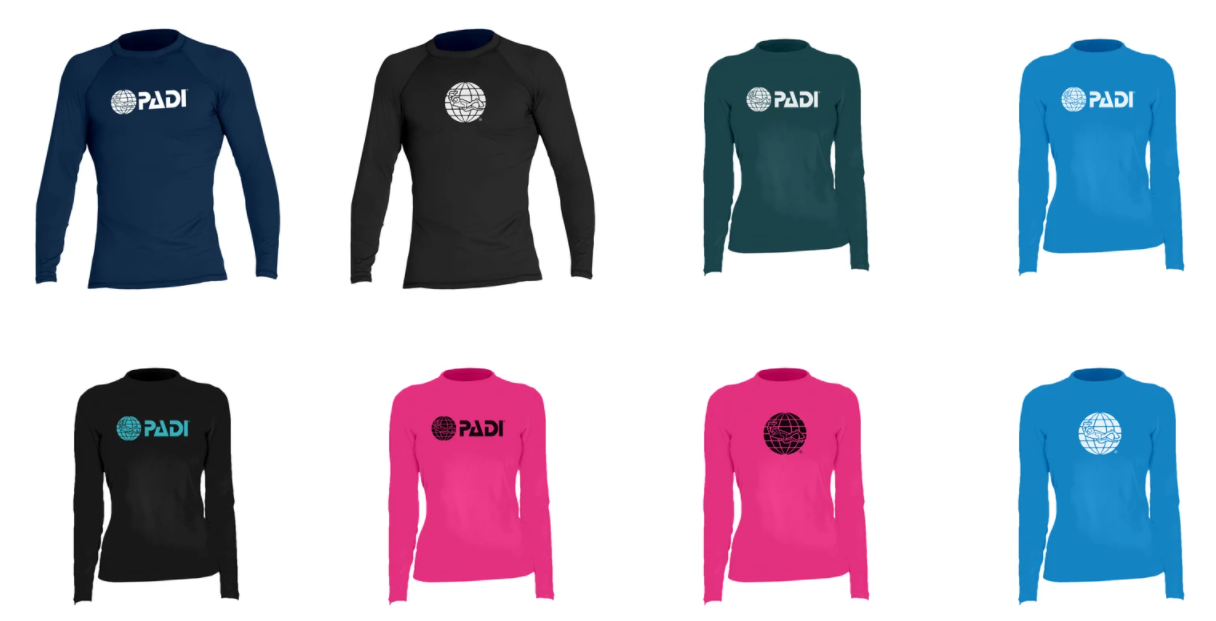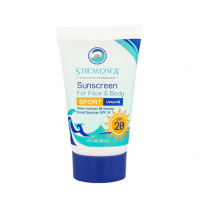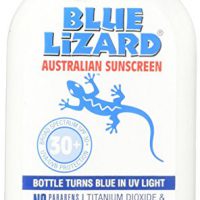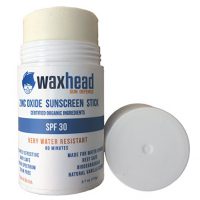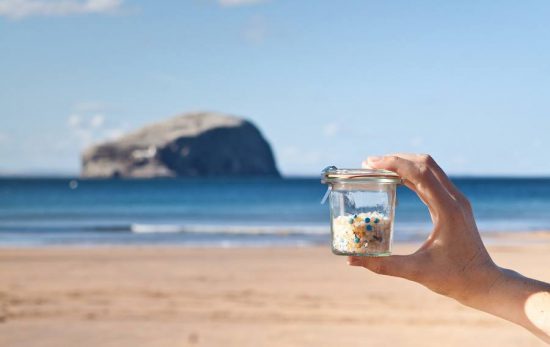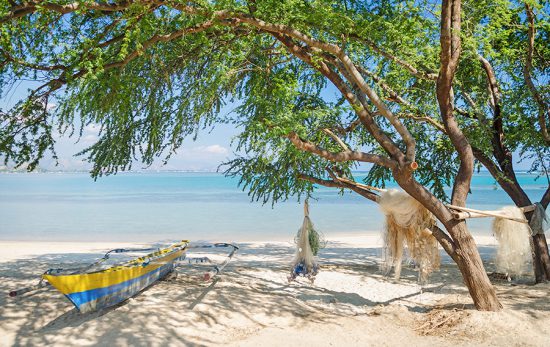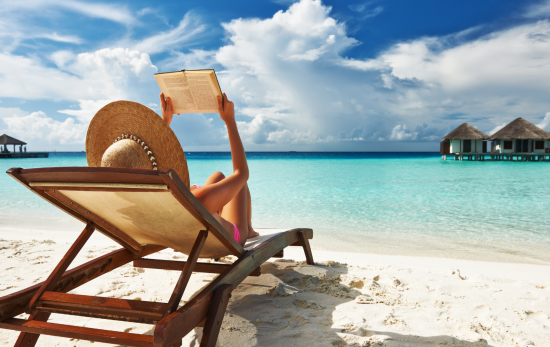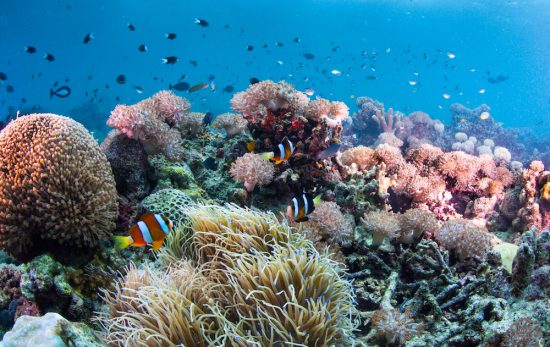We all know the importance of protecting our skin from the sun. Overexposure to the sun can result in sunburn, blistering, inflammation and even skin cancer. However, did you know that some sunscreens and their ingredients can be harmful to coral reefs? In this article we aim to outline sunscreen ingredients to avoid and why, along with providing some recommended natural or reef safe sunscreens.
Sunscreen Ingredients to Avoid
Many sunscreens use ingredients that can harm coral reefs – even those labeled “reef safe.” The evidence is so strong that many of the world’s top diving destinations, including Bonaire, Hawai’i, Palau and parts of Mexico, now ban sunscreen with toxic ingredients.
The primary suspect is oxybenzone, a common sunscreen ingredient used by big brands like Banana Boat, Coppertone, Neutrogena and others. Oxybenzone (also known as benzophenone-3 or BP-3) might be bad for people, too. It has been shown to reduce testosterone levels in men.
Even though you only put sunscreen on your skin, chemical ingredients can seep into your body. Oxybenzone has been detected in amniotic fluid, urine and blood, and in the breast milk of dolphin and human mothers. To learn more, read ‘Sunscreen Beyond Oxybenzone‘.
How and Why Does Sunscreen Harm Corals?
Hard corals are living organisms and, as such, they are extremely sensitive to certain environmental conditions. Hard corals, also known as reef-building corals (only hard corals can build reefs) are made up of colonies of polyps. Hard coral polyps are actually translucent; however, they contain microscopic algae called zooxanthellae, which exist with the animal in a symbiotic relationship. It is the zooxanthellae algae that gives coral its beautiful colors.
Why is this important to know? Because the chemicals in regular sunscreens cause coral ‘bleaching’. Coral bleaching is when corals begin to lose their color and start to appear white. The ultraviolet filters (namely oxybenzone) in sunscreen that protect human skin from the sun’s rays cause serious infections in the zooxanthellae algae. As the algae inside the polyps dies, the coral loses its color and begins to die, too.
Natural vs. Reef-Safe vs. Organic Sunscreen
A sunscreen may be labeled “natural,” “reef-safe,” “organic,” or “biodegradable,” but that doesn’t mean the contents aren’t toxic to coral. Always check the ingredients. Don’t use sunscreens containing oxybenzone, avobenzone, butylparaben, octinoxate or 4-methylbenzylidine camphor if you plan to go anywhere near the water. Even a small amount can cause or exacerbate coral bleaching.
According to NOAA, no sunblock is scientifically-proven to be reef safe, but mineral sunscreens made with non-nano titanium oxide or zinc oxide do not appear to harm corals.
Because chemical processes are used to create sunscreen, even mineral-based ones, the best option is to cover up rather than slather on. Wearing a long-sleeve rashguard with UV protection is safer than any sunscreen, and (bonus) you don’t have to remember to reapply.
Plus, PADI Gear rash guards are made from recycled ocean plastic!
The Best Natural or Reef Safe Sunscreens for Scuba Diving and Snorkeling
Please note: The sunscreens below are not endorsed by PADI. We do not have a bio-chemist on staff or a lab to test hundreds of sunscreens. Luckily, there is an organization that does – EWG. We compared their list of recommended sunscreens to products with a lot of positive reviews on Amazon to create the list below. If you purchase any of the products on this page using our Amazon Associates links, any revenue earned from the product sale will be donated to support the ocean conservation efforts of PADI AWARE®.
1. Stream2Sea
Stream2Sea, has extensively researched and tested their product to ensure it’s as coral-friendly as possible. Visit their website to learn more.
2. TotLogic Safe Sunscreen SPF 30
People love TotLogic. At the time this article was written, TotLogic had some of the best reviews of any sunscreen on our list.
3. Blue Lizard Australian Sunscreen, Sensitive SPF 30+
The bottle changes color in UV light, a great reminder to reapply.
4. BurnOut Ocean Tested Physical Sunscreen, SPF 30
We’ve been making these “best of” sunscreen lists since 2013, and BurnOut (along with Blue Lizard above) has been on almost all of them.
5. Waxhead Vanilla Zinc Oxide Sunscreen Stick
Want a stick instead of a cream? Try Waxhead, which is great for water sports thanks to its water resistant qualities.
6. Badger Sunscreen Face Stick
EWG gives Badger’s entire product line top marks, and Amazon shoppers love them, too. Badger has a wide range of reef-friendly balms, creams and sticks for adults and children.
7. Thinksport Sunscreen Lotion, SPF 50+
Thinksport’s natural sunscreen is another long-time favorite, especially with athletes. They also make sunscreen for kids.
What About Spray-On Sunscreens?
Spray-on sunscreen is super-convenient, BUT a lot of spray sunscreens (including many that claim to be reef safe) use avobenzone. Just like oxybenzone, avobenzone can be absorbed into your bloodstream. Even worse? Avobenzone doesn’t protect your skin very well.
Avobenzone breaks down quickly in the sun (within 30-60 minutes). To be effective, it has to be paired with a stabilizer – often something that’s toxic to marine life.
I’ve tried a few different natural spray-on sunscreens and gotten burned. I’m not sure if the zinc oxide gets too diluted when made into a spray or if there’s a different chemical reaction occurring. I found one spray-on sunscreen that received an acceptable rating from EWG and decent reviews on Amazon, but it costs a lot more than the non-spray options.
Are Tanning Oils Reef Safe?
Tanning oils are essentially the same as sunscreen but with very little SPF protection. If you are heading out for a day of diving or snorkeling, then tanning oils should be absolutely avoided. Not only can they damage the coral reefs, but the chances are that you will get badly burned and not tanned!
Seek Adventure. Save the Ocean.
PADI encourages all divers to make ocean-friendly choices in all aspects of their lives. Marine debris, microplastics, rising sea temperatures, and overfishing are massive threats to the health of our ocean planet. Our individual choices really do matter. As a PADI Torchbearer, you can turn your passion into purpose. Learn more about our Blueprint for Ocean Action here.

